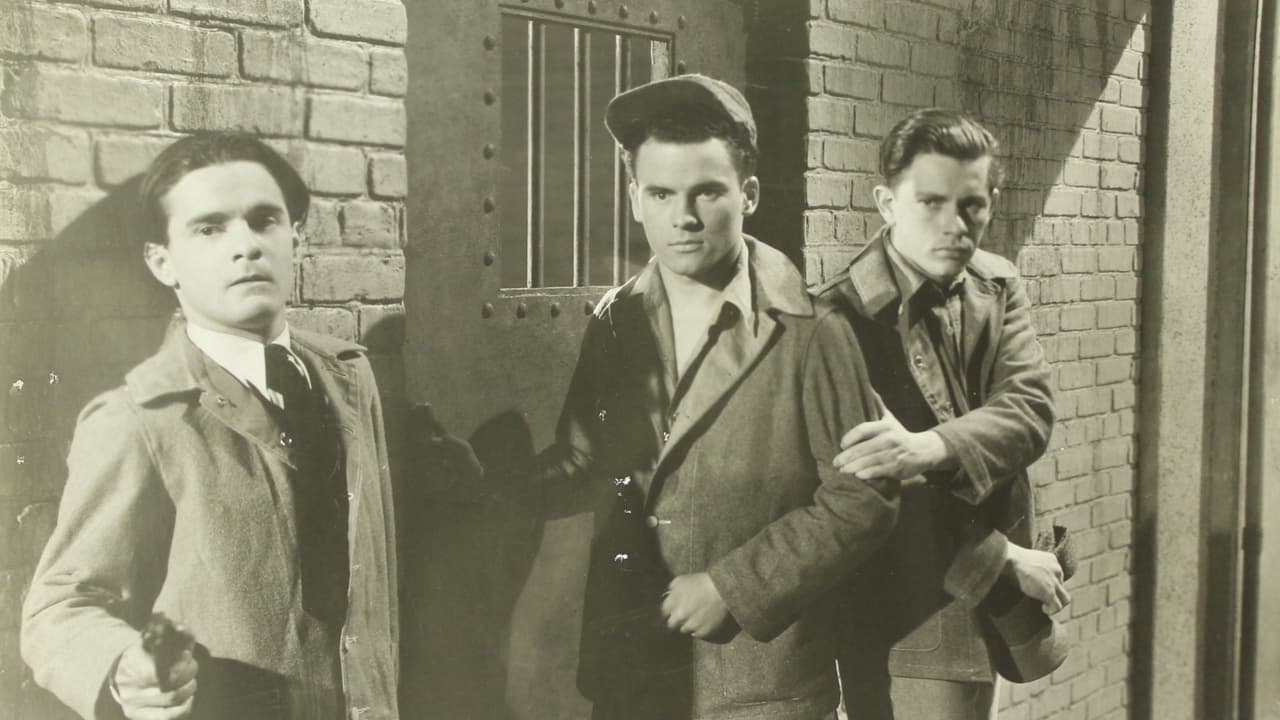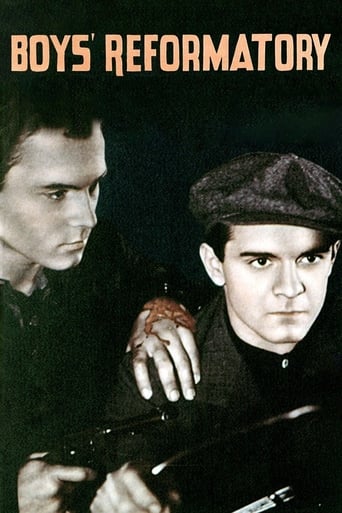GamerTab
That was an excellent one.
Matialth
Good concept, poorly executed.
Asad Almond
A clunky actioner with a handful of cool moments.
Kayden
This is a dark and sometimes deeply uncomfortable drama
bkoganbing
Frankie Darro and Grant Withers star in Boys Reformatory which if made at Warner Brothers would have had Pat O'Brien playing the sympathetic prison doctor more than likely. It also would have had far better production values.After saying that it's not a bad if sentimental juvenile story. Darro is foster child to Lillian Elliott and he's constantly bailing her real child Frank Coghlan, Jr. out of scrapes. One time though to save Elliott from grief, he takes the rap for Coghlan over a heist and finds himself in Boys Reformatory. It's there he meets Grant Withers as the prison doctor. Soon enough Coghlan is there and then things start happening.A younger, a much younger version of James Cagney might have put over the part, especially when Darro takes the rap. No criticism of Darro but you have to have someone like a Cagney to make it convincing.Ben Welden plays a Fagin like character, owner of a pool hall and leader of the young boys he lures into a life of crime. He does a decent job, the best performance in the film.Boys Reformatory is a Monogram film, a Sam Katzman special so don't expect too much. I didn't.
mark.waltz
Pals Frankie Darro and Frank Coghlan Jr. are practically brothers under the skin, Darro raised pretty much by Coghlan's long-suffering mother (Lillian Elliott) and more loyal to her than her own offspring. Coghlan doesn't come home for his own birthday dinner and as a result of a criminal act Coghlan was in the middle of, Darro ends up in reform school, breaking his surrogate mother's heart in the process, even more when Coghlan ends up there as well. An escape leads to more criminal activity yet heroics by the two non-blood brothers who have learned a lesson or two.While some of the reformatory scenes are truly tough, the title promises a film which is never delivered, the atmosphere overloaded with more pathos than the grittiness that should be there. The sleazier characters are extremely one dimensional, the good brother/bad brother theme a bit overplayed, and Elliott's seemingly aging mother the type that early talkie melodramas always presented as the kindly drugstore owner who is always threatened with foreclosure. Grant Withers, as the reformatory doctor, gets a few good key scenes, but his character is never developed beyond predictability already seen in many films of this nature.
MartinHafer
In the late 1930s, it was fashionable in Hollywood to make films about the penal system that were intended to promote prison reform--particularly films about juvenile institutions. There were a ton of them and most were actually pretty good--if a bit idealistic. In this particular film, Frankie Darro enters a prison unjustly and meets a reform-minded doctor who seems to be voicing the sentiments of the screen writers.The film begins with two young men. One is an orphan (Frankie Darro) who lives with the other young man's family (Frank Coughlin Jr.). When Coughlin goes into a life of crime and nearly gets himself caught by the police, nice-guy Darro takes the rap for him and goes to jail--though this really makes no sense. Who would agree to go to prison for robbery if they didn't commit it?! Anyway, Darro works hard in prison and tries to make a new life for himself. However, when Coughlin ALSO later gets sent there and the boss-man wants to have both of them killed (since they know too much), things heat up and it leads to an unbelievable but enjoyable finale. Overall, while certainly not a brilliant film, it is entertaining. Brilliant? Perhaps not--but worth a look.
orsonwelles-1941
This is a satisfying little B gem from Associated Artists with a solid performance from Darro as a streetsmart, yet self-sacrificing adolescent willing to endure a tough reform school for the sake of protecting his foster family's good name. It never fails to amaze me how these low budget 1930s B-directors were able to pack so much plot into a one-hour movie and Boys' Reformatory is a prime example of what seems like a truly daunting task. Maybe it was because I watched this late at night but a certain plot twist towards the end really floored me. However, those accustomed to the grittier,more realistic exposes of the thirties juvenile justice system like Crime School that Warners was putting out about this time may be disappointed that this movie focuses more on the issues that caused the kids to be sent to reform school as opposed to the conditions inside the institution. Still if you are looking for one of the more entertaining, action-packed efforts of one of the great, but nearly forgotten young B actors, this movie is well worth your while. P.S. If you own a video projector, I don't recommend watching the DVD on the big screen as Alpha used a somewhat shaky 16mm for the source print. Nostalgia Family Video has this on VHS but I have no idea of the quality on that one.

